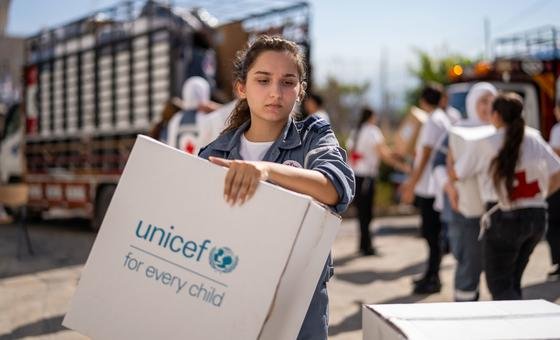According to the UN Office for Humanitarian Affairs (OCHA), the current violent conflict has entered a critical phase. The number of people killed since October 8, 2023 is 58 percent higher than during the 34 days of violent conflict between Israel and Hezbollah in 2006.
Nearly two decades ago, 1,900 people lost their lives in that conflict. At the same time, more than 1.3 million people have so far been forced to flee to Lebanon and neighboring countries.
At least 71 people were reported killed in airstrikes across the country on November 1, according to the United Nations agency.
The humanitarian situation in Lebanon is deteriorating as Israeli airstrikes intensify and civilians are ordered to leave their homes.
Meanwhile, UN humanitarian workers have provided medical aid to a hospital in Lebanon where burn patients are treated. Such incidents have increased in recent times due to the increase in violence.
In southern Lebanon, at least 20 people were killed in Israeli military strikes in areas including Nabatih Governorate.
The healthcare sector is facing a crossfire and it is becoming increasingly difficult for clinics, staff and resources to escape the crossfire. This poses challenges to an already fragile system in Lebanon.
Since October 2023, more than 110 health workers have lost their lives while providing their services in Lebanon. At least 60 healthcare facilities have been attacked in the past 13 months.
Support for healthcare workers
The World Health Organization says victims of airstrikes in Lebanon are being admitted to hospitals. In this situation, it is necessary to provide support to the only specialist hospital in the country that provides treatment for burn patients.
So far 40 patients have been treated, of which about 25 percent are children. Initially, the hospital had 10 beds, which has now increased to 25, and treats critically injured patients.
The UN’s top humanitarian official in Lebanon condemned the targeting of medical workers and health infrastructure.
According to humanitarian coordinator Imran Riza, medical centers and health workers should provide all possible assistance. At the same time, violations of international humanitarian law must be stopped and health workers must be ensured to fully fulfill their responsibilities.
The food security situation in Lebanon is deteriorating. From April to September 2024, 1.3 million people, or 23 percent of the country’s total population, suffered from high levels of food insecurity.
In light of this, UN experts have called for food, cash aid and support for agricultural work to reach vulnerable populations in Lebanon.

